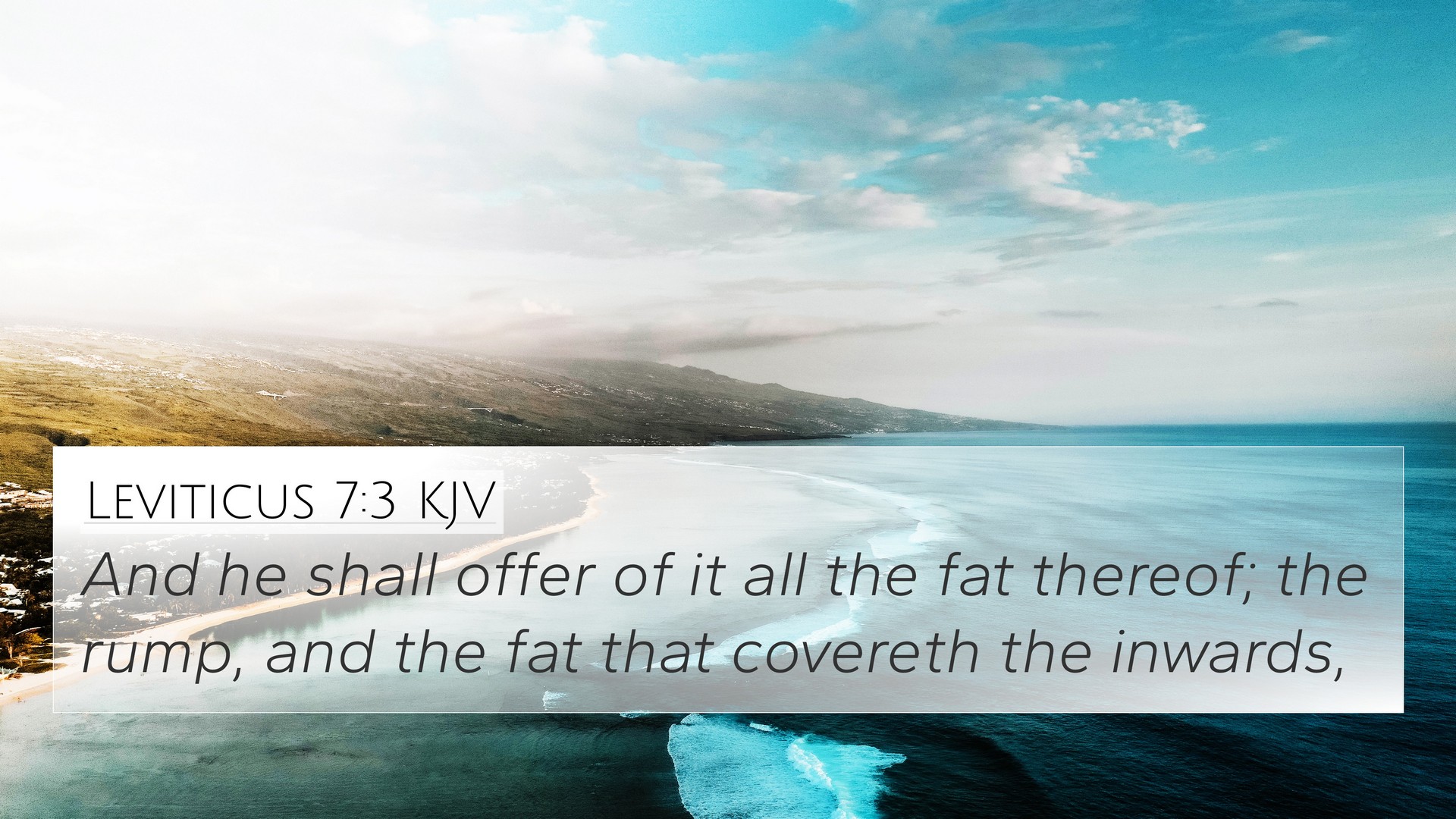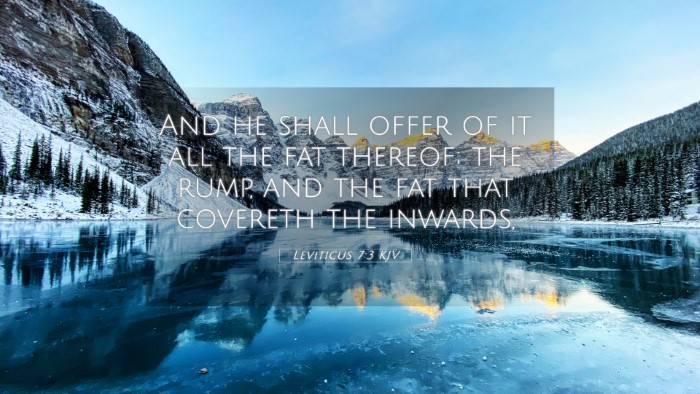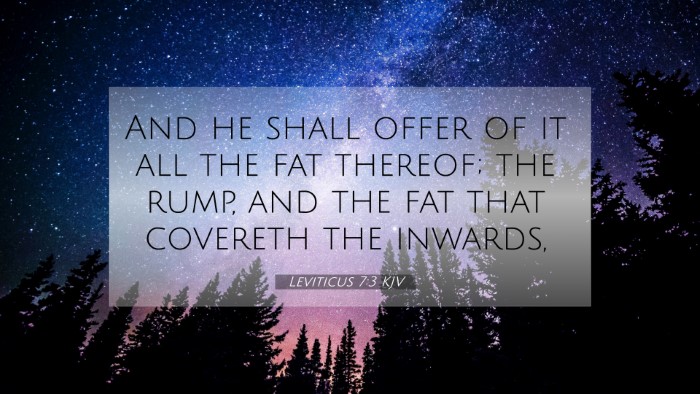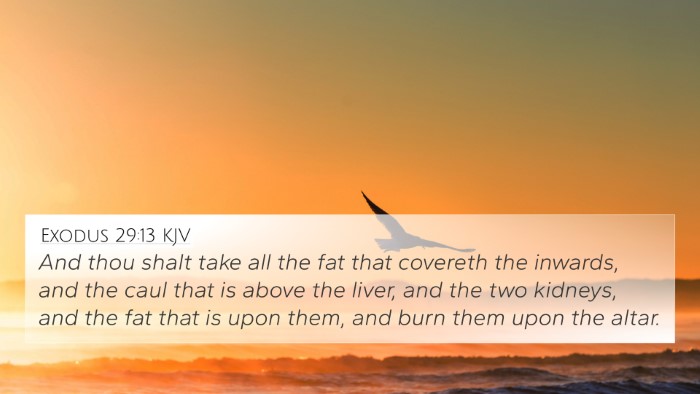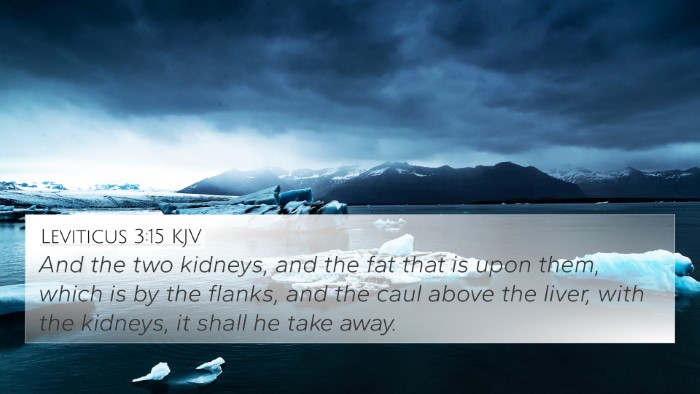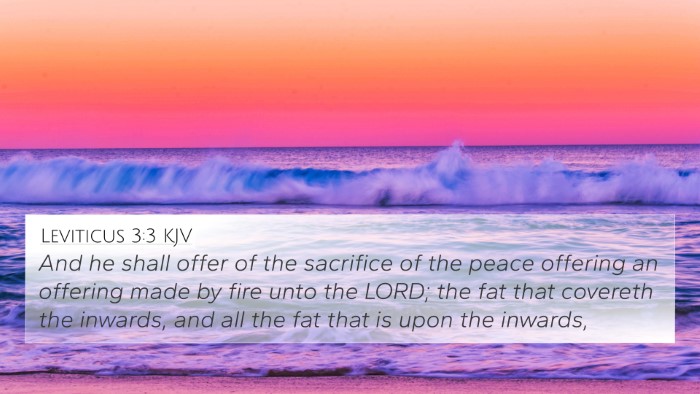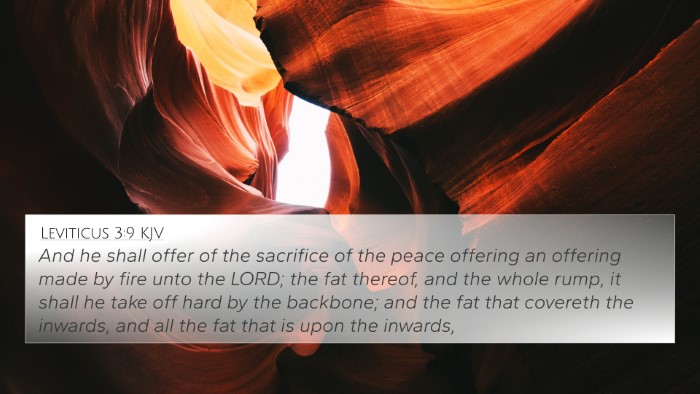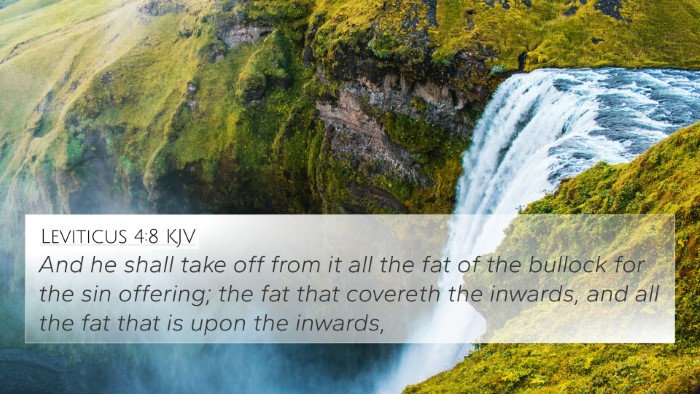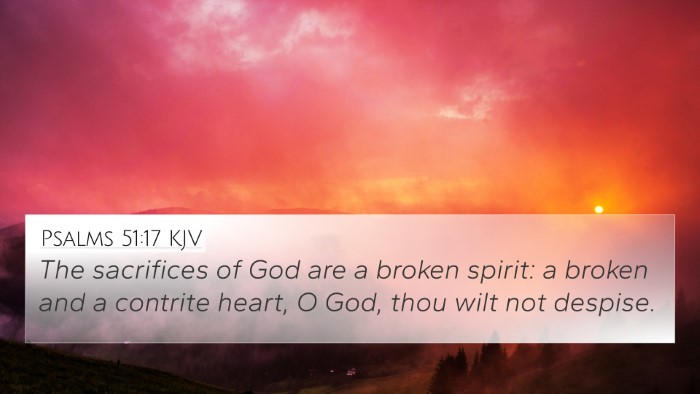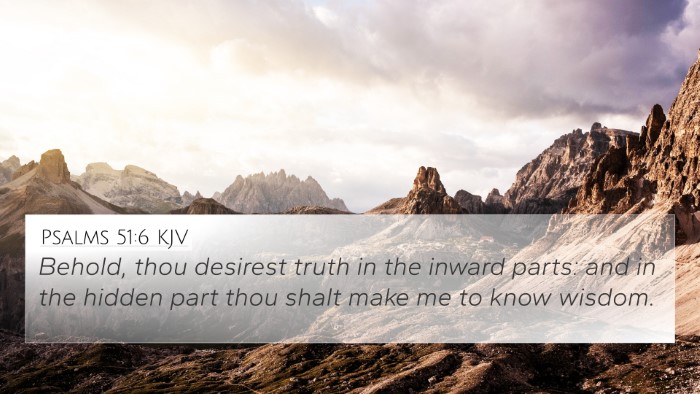Understanding Leviticus 7:3
Leviticus 7:3 states, "And he shall offer of it all the fat thereof; the rump, and the fat that covereth the inwards, and the two kidneys, and the fat that is upon them, which is by the flanks, and the caul that is above the liver, with the kidneys, it shall he take away." This verse is part of the sacrificial laws given to the Israelites, specifically concerning the peace offerings. Below we explore the interpretations and insights from various public domain commentaries to better understand its meaning.
Summary of Commentary Insights
Leviticus 7:3 elaborates on the specifics of offerings, detailing the portions of the fat that are to be given to God. According to Matthew Henry, this verse exemplifies the principle of dedicating the choicest parts of one's offerings to the Lord. He emphasizes that this act symbolizes a recognition of God’s sovereignty and holiness.
Albert Barnes further elucidates that the fat represents the best of the animal, which signifies abundance and richness. He notes that the procedures outlined in this verse were a way of showing reverence and gratitude towards God, reflecting both His generosity and the worshippers’ acknowledgment of their dependence on Him.
Adam Clarke highlights the practical aspect of these offerings, suggesting that they also served a communal purpose, showing the shared relationship between God and the congregation. He points out that these instructions were crucial for maintaining order and ensuring that sacrifices reflected the worshippers' devotion.
Bible Cross-References
- Exodus 29:13 - Details on the offerings and the fat that must be burned on the altar.
- Leviticus 3:16 - Explains further the offerings' fat belonging to the Lord, affirming its sacredness.
- Leviticus 7:29 - Discusses the regulations surrounding the presentation of offerings to God.
- Deuteronomy 12:17 - References the sharing of sacrifices and the preservation of holiness in offerings.
- Hebrews 13:15 - Offers a New Testament perspective on sacrificial worship, linking it to praise.
- Romans 12:1 - Encourages believers to offer their bodies as living sacrifices, connecting to the spirit of the peace offering.
- 1 Peter 2:5 - Describes believers as a holy priesthood offering spiritual sacrifices acceptable to God.
Thematic Connections
The themes presented in Leviticus 7:3 resonate throughout the Scriptures, offering connections between Old and New Testament teachings on sacrifice and worship. The specific description of the parts of the animal highlights the importance of offering the best to God, which relates to:
- Covenant Observance - The sacrificial system established a covenantal relationship that required obedience and reverence (Exodus 24:8).
- God's Demand for Holiness - Sacrifices served as a reflection of the need for holiness and atonement (1 Peter 1:16).
- The Role of Fat in Offerings - Symbolizing abundance and the richness of life, fat was considered special (Proverbs 15:8).
Inter-Biblical Dialogue
The teachings surrounding Leviticus 7:3 initiate an inter-Biblical dialogue that provides a rich understanding of the sacrificial system. To fully appreciate its implications, one can consider:
- The Transition from Old to New Covenants - How the themes of sacrifice evolved with the coming of Christ (Matthew 5:17).
- Comparative Studies of Paul’s Epistles - Understanding how Paul's writings reflect and reinterpret Old Testament sacrificial practices (Ephesians 5:2).
- Reflections in the Psalms - Exploring how the psalmists expressed similar themes of sacrifice and dedication (Psalm 51:17).
Conclusion
Leviticus 7:3 serves as a foundational scripture in understanding the importance of offerings in the life of Israel. Through cross-referencing with other scriptures and examining commentary insights, one can gain deeper insights into the nature of worship and commitment to God, both in ancient times and in contemporary faith practices. This verse, along with its cross-references, highlights the continuity of themes regarding sacrifice, holiness, and divine relationship across the Bible.
